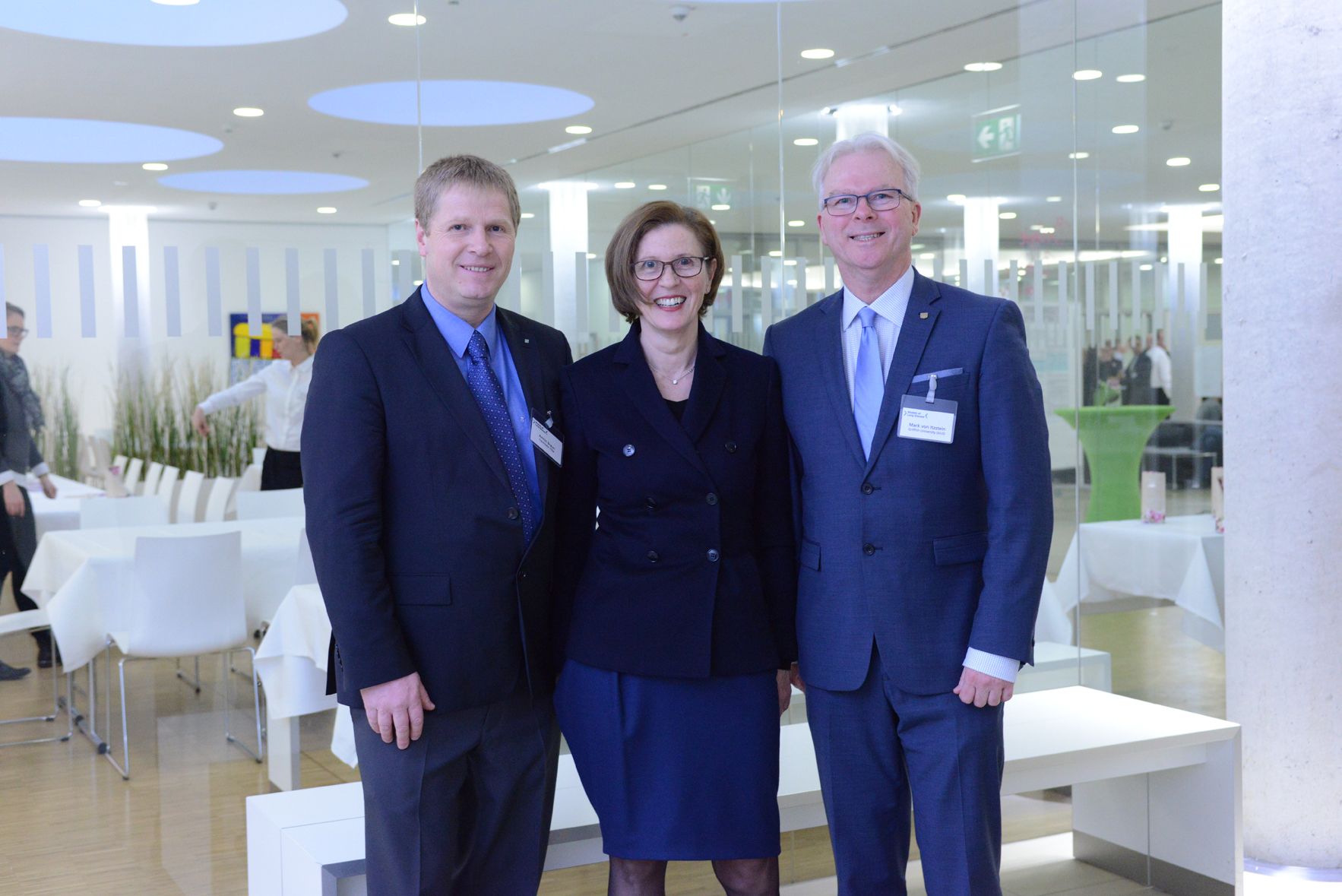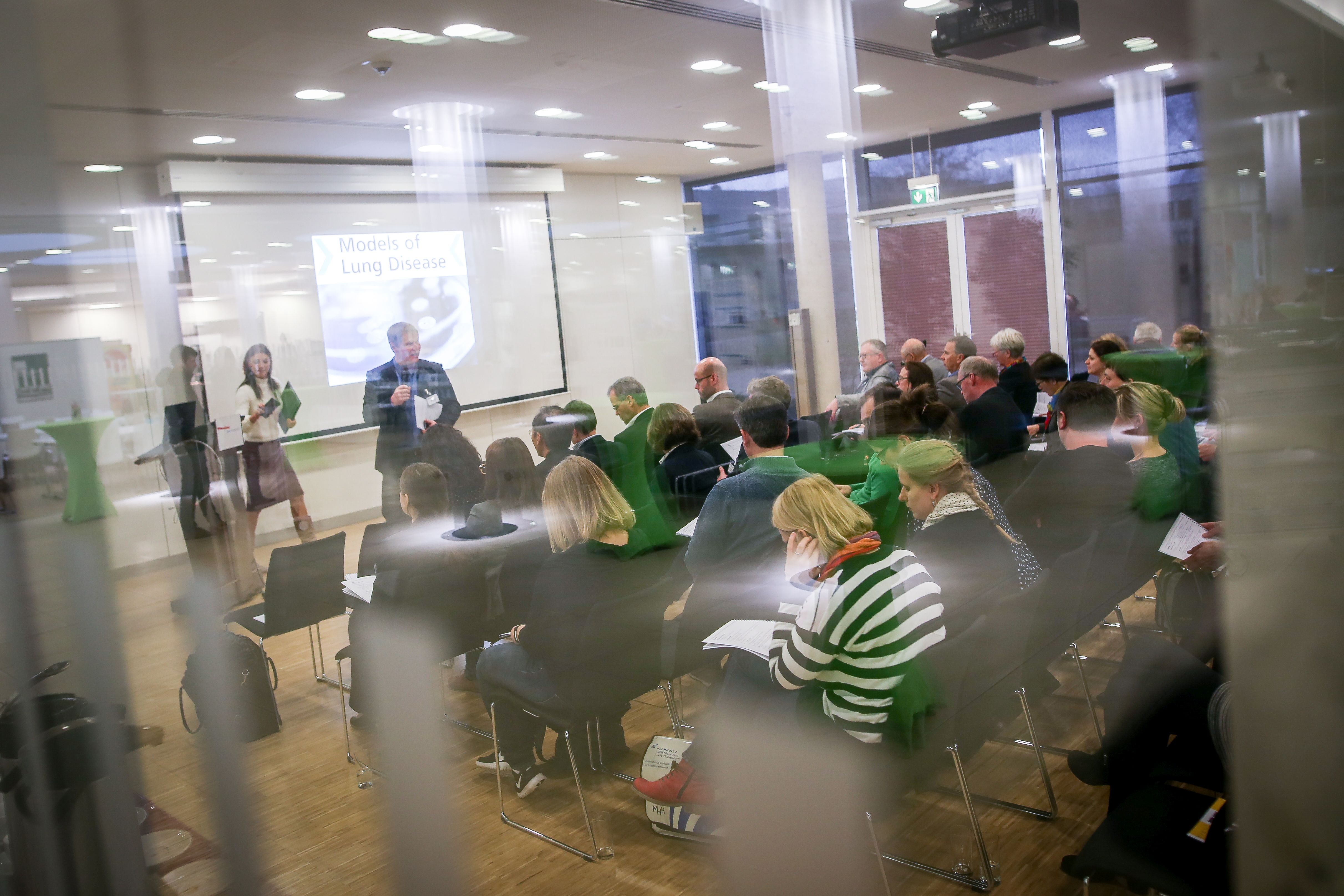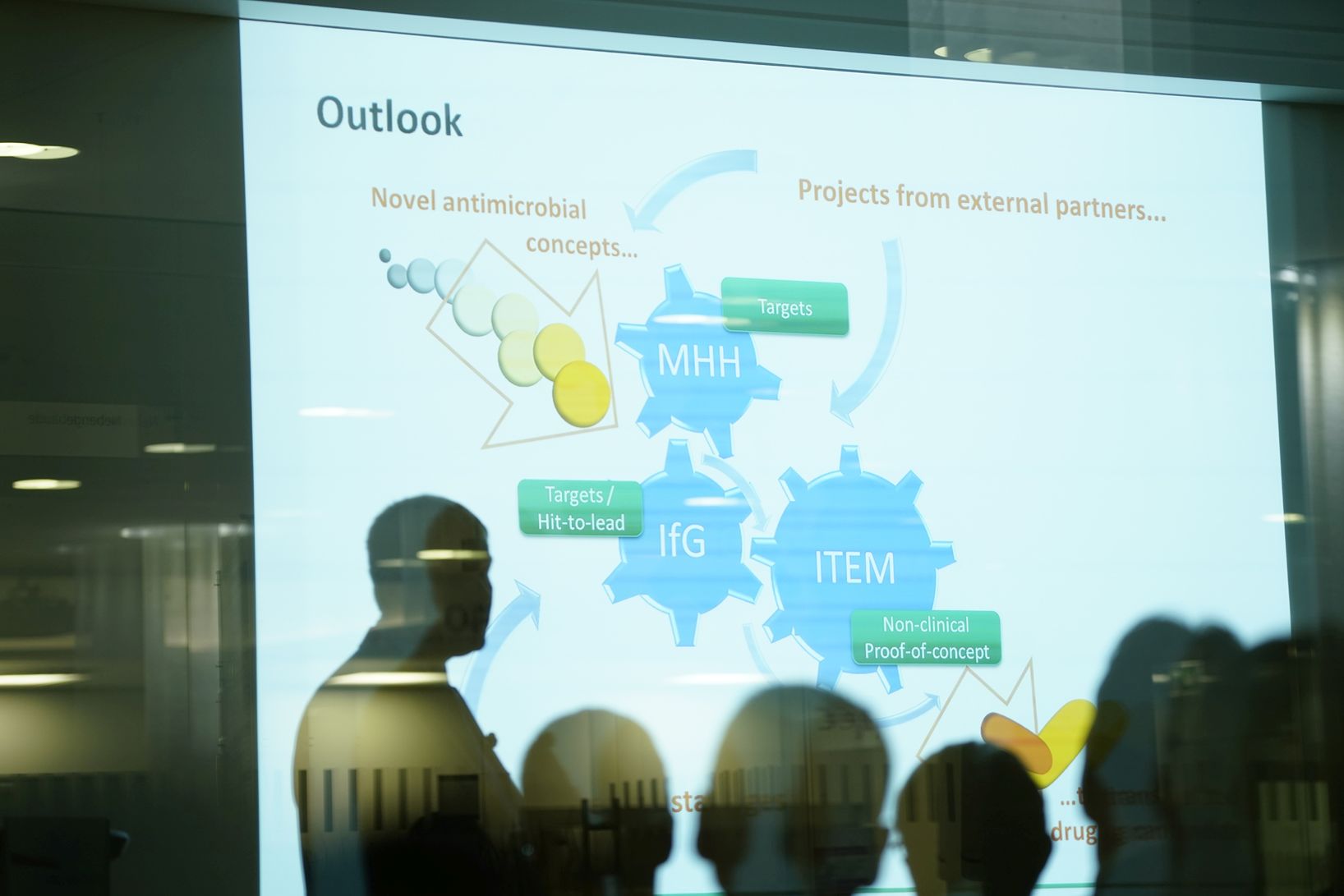Battling infection and resistance
Fraunhofer launches German-Australian iCAIR project
(Hannover, Germany) Researchers from the Fraunhofer Institute for Toxicology and Experimental Medicine ITEM have teamed up with colleagues from the Hannover Medical School (MHH) and Griffith University’s Institute for Glycomics (IfG) in Gold Coast, Australia, in the Fraunhofer International Consortium for Anti-Infective Research – iCAIR in brief. They have set themselves the ambitious goal of developing novel anti-infective drugs. At Fraunhofer ITEM, this pioneering collaboration was officially launched on January 18, 2018. Representatives from academia, industry, governmental institutions and the Australian embassy got together to celebrate this launch.

Infections can be lethal. Not only influenza viruses pose a substantial risk: bacteria that are resistant to antibiotics each year cause hundreds of thousands of deaths worldwide. “Medicine needs new treatments to combat infection, and that translates into an urgent need to develop new drugs,” says Prof. Armin Braun, division director of preclinical pharmacology at Fraunhofer ITEM. “High development costs, the likely brief treatment time and the potential for bacterial resistance have been putting companies off, since they are wary of losing money.” The biggest obstacle is the long way from the discovery of new, potentially beneficial drugs to actual clinical trials. The public domain project iCAIR is aimed at closing this gap in the development process and at developing new treatment options all the way from the identification of potentially beneficial substances to the preclinical proof of concept.


“By pooling the unique and complementary core competencies of the three project partners, we have provided ourselves with the ideal framework for achieving this goal,” says Prof. Mark von Itzstein, director of the IfG. “The consortium has all the necessary expertise: we’ve got the IfG and the MHH for identifying and profiling treatment agents, the IfG for identifying, designing and optimizing potential drugs, and Fraunhofer ITEM for the preclinical testing of the safety and efficacy of new medications.” iCAIR will use selected lighthouse projects to establish and demonstrate its position as an expert preclinical development platform for new anti-infective drugs. One objective of these projects will be to target new treatments to combat infection-causing bacteria and fungi, including Pseudomonas aeruginosa, Neisseria meningitides and Aspergillus fumigatus, as well as the human parainfluenza and influenza viruses, and develop these treatments to the point of preclinical proof of concept.
“iCAIR is responding to society’s urgent need for new drugs to combat the increasing threat of uncontrollable infectious diseases,” says Prof. Rita Gerardy-Schahn, director of the MHH’s Institute for Clinical Biochemistry. “iCAIR is breaking new ground in the development of new drugs with a closely networked system that covers all the steps of a targeted development process, from identifying potential points of attack all the way to drug design and efficacy testing.”
The development platform established in the iCAIR project will be made available to external partners in addition to its use in proprietary projects. This is geared towards contract research in the pharmaceutical industry as well as small and medium-sized enterprises and publicly funded projects. In the long term, the iCAIR project alliance could lead to a Fraunhofer Project Center and potentially a Fraunhofer Center for new anti-infective drugs.
Margalit Levin of the Australian embassy in Berlin said, ”The iCAIR project joins a growing list of outstanding science, innovation and research projects between Germany and Australia, with the potential for significant global impact. This collaboration between Fraunhofer ITEM, Hannover Medical School and Griffith University’s Institute for Glycomics is proving once again that distance is no longer a barrier when pursuing research excellence – and they will now work together to tackle the global imperative of developing new anti-infective therapies.”
 Fraunhofer Institute for Toxicology and Experimental Medicine
Fraunhofer Institute for Toxicology and Experimental Medicine